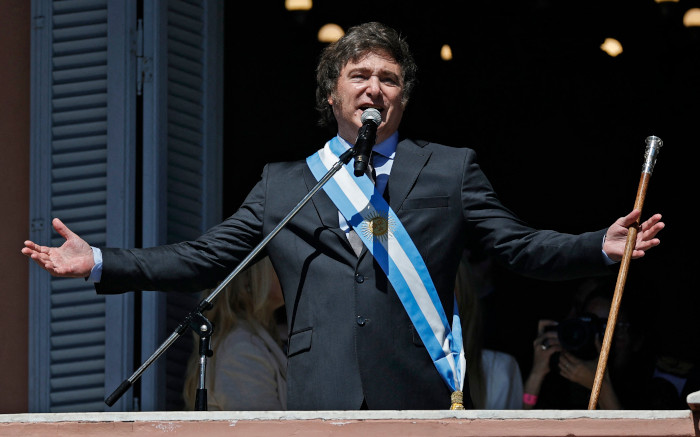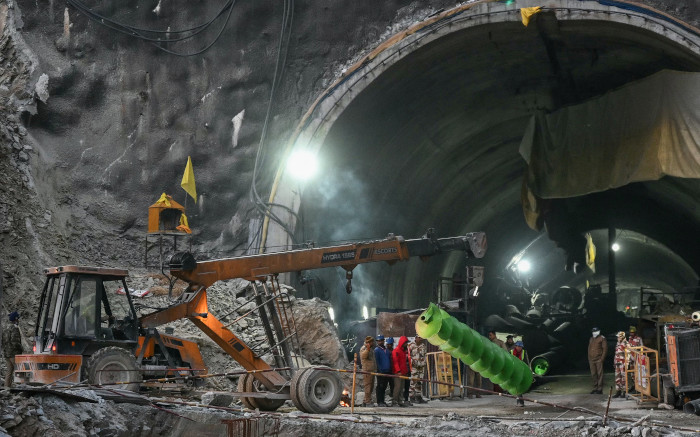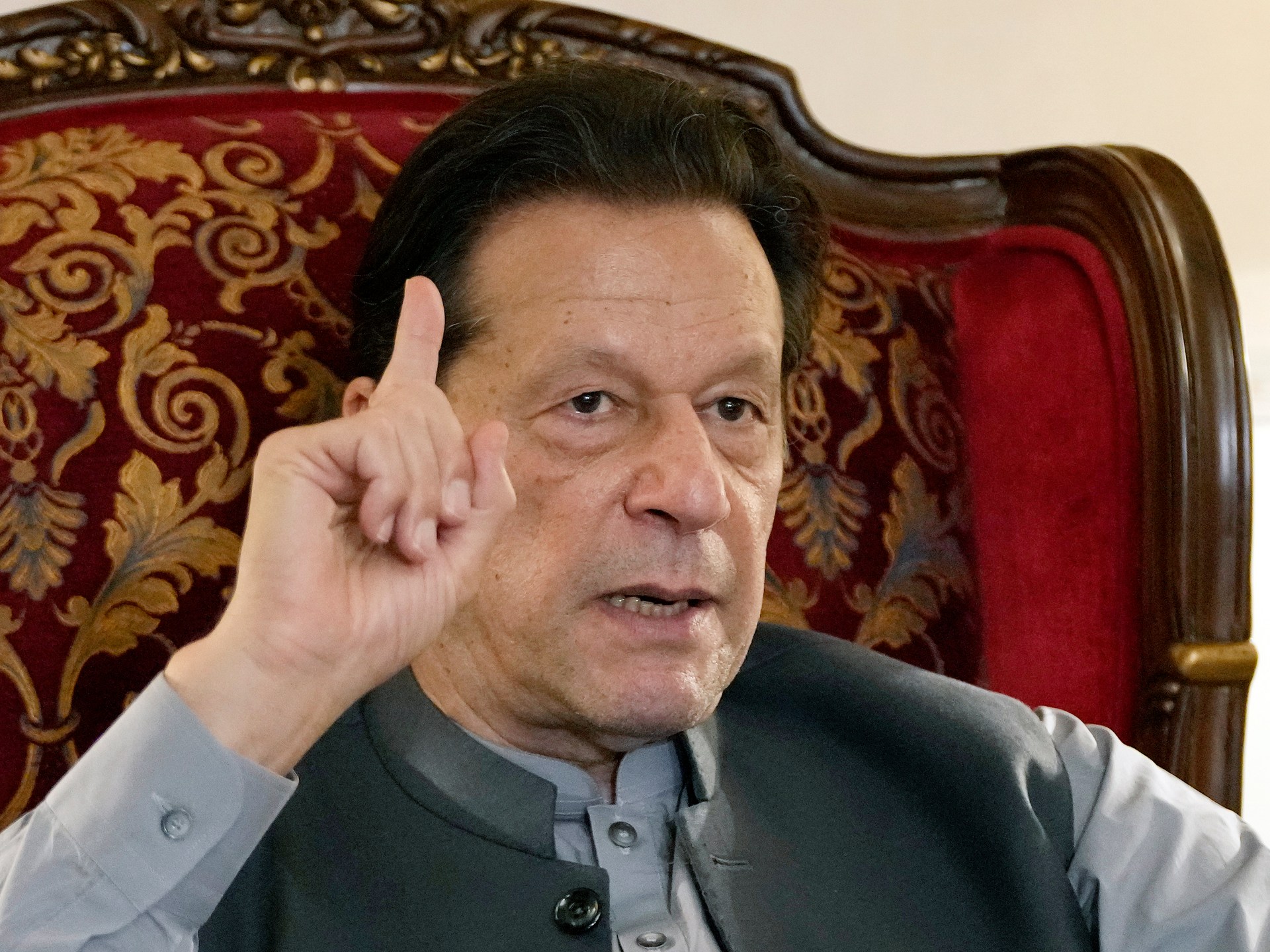
Javier Milei, who was elected last month and took office 10 days ago, has promised to curb inflation but warned that dealing with economic “shocks” is the only solution and that the situation will get worse before it gets better .
Argentina’s new President Javier Milei speaks to the crowd from a balcony of the Casa Rosada government palace during his inauguration day on December 10, 2023 in Buenos Aires. Libertarian economist Javier Milei was sworn in as Argentina’s president on Sunday after a stunning election victory fueled by anger over the country’s economic crisis. Image: Emiliano LASALVIA/AFP
BUENOS AIRES – Argentina’s new leader Javier Milei unveiled a series of measures Wednesday to deregulate the country’s struggling economy, eliminating or changing more than 300 rules by presidential decree, including on rents and labor practices.
“The goal is to embark on the path of rebuilding the country … and begin to undo the large number of regulations that have slowed and prevented economic growth,” Milei said in a televised address from the presidential palace, flanked by his cabinet .
Latin America’s third-largest economy is in ruins after decades of debt and financial mismanagement, inflation is over 160 percent year-on-year and 40 percent of Argentines live in poverty.
Milei, who was elected last month and took office 10 days ago, has promised to curb inflation but warned that dealing with economic “shocks” is the only solution and that the situation will get worse before it gets better .
The changes announced Wednesday include the scrapping of a law regulating rent and rules preventing the privatization of state-owned companies.
Milei also announced a “modernization of labor law to facilitate the creation of real jobs” and a series of other deregulation measures affecting tourism, satellite internet services, pharmaceuticals, wine production and foreign trade.
Following the speech, thousands of people gathered on the streets near the convention to express their dissatisfaction.
The decree was published in the government gazette at midnight. It must now be evaluated within 10 days by a joint committee of lawmakers from both chambers of the legislature.
Constitutional law expert Emiliano Vitaliani told AFP that the decree could only be repealed if it was rejected by both the lower house and the Senate.
Milei’s far-right Libertad Avanza party has just 40 seats in the 257-member lower house and seven of 72 senators. But Milei’s lead improves when members of the center-right coalition Together for Change are taken into account.
“SHOCK” THERAPY FOR THE BUSINESS
For political scientist Lara Goyburu, Milei’s moves are not surprising given how he campaigned for the presidency. But she told AFP that his use of an emergency decree was unusual.
The 53-year-old libertarian and self-described “anarcho-capitalist” said spending cuts amounting to five percent of gross domestic product were necessary.
Before Wednesday’s announcement, his government had already devalued the Argentine peso by more than 50 percent and announced significant cuts to generous government subsidies for fuel and transportation starting in January.
Milei has also announced a halt to all new public construction projects and a one-year suspension of government advertising.
Last week’s measures to combat inflation were welcomed by the International Monetary Fund, to which Argentina owes $44 billion.
“Over the last century, politicians have taken pains to expand the power of the state to the detriment of ordinary Argentines,” Milei said Wednesday.
“Our country, which was the world’s greatest power in the 1920s, has been embroiled in a series of crises over the past 100 years, all stemming from the same cause: budget deficits.”
Milei won a stunning election victory in November, riding a wave of anger over decades of recurring economic crises marked by debt, rampant money printing, inflation and budget deficits.
Argentines continue to suffer from hyperinflation of up to 3,000 percent in 1989-1990 and a dramatic economic implosion in 2001.
Before Milei’s speech, thousands of people in Buenos Aires protested against his government, waving banners and shouting slogans near the Casa Rosada presidential palace.
Their route through the city center was lined with military police and other security personnel, including police in full riot gear. This was a major show of force that protest organizers criticized as an attempt at provocation.
“This reminds me of the dictatorship” from 1976 to 1983, said Eduardo Belliboni, leader of the left-wing Polo Obrero movement.






Recent Comments